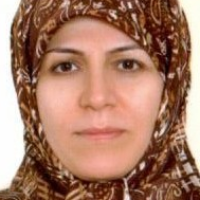Alienation in Everyday Life: Case Study of Urban Space in Tehran
Such issues as authoritative space design, unproductivity of urban management, and the inability of urban space to facilitate the emergence of differences and transfer of meaning lead to the experience of alienation in the daily life of the residents of Tehran. Taking an anthropological and critical approach and applying Henri Lefebvre’s theory of production of space, this research compared class experience of alienation among the residents of Tehran. Alienation was defined as an instrumental relationship against a relationship for its own sake and appropriation against ownership. Space of stock market, Khalij Fars Lake and Khalazir neighborhood were selected as representatives of abstract and concrete spaces as well as Lefebvre’s trialectics of space. Multiple data were collected through observation, photos, personal interviews, previous studies and ethnographies, documentaries, organizational documents, press reports and online survey about every space. The data was coded, categorized, and analyzed interpretatively and inductively through formal, functional, and structural analysis. The study showed that alienation with others, self, labor, urban space, and everyday life, is a common experience between all classes and is related to the spatial order of the city, but it finds different meanings in the center and the periphery and is integrated in the everyday consciousness in a different way. Alienation in relation of production is experienced in the meaningless work, competitive market, and commodification are common experiences on a global scale, while political and cultural alienations depend on the specific characteristics of Tehran. The moments may be liberating at a level of social reality and remain fruitless at a higher level. The diverse manifestations of daily life, along with prohibitions, fears, and gaps, prevent the formation of collective consciousness and, as a result, a collective effort to de-alienation.
-
Analysis of the Geopolitical Isolation of the Islamic Republic of Iran
Ebrahim Ahmadi, Mohammadreza Hafeznia *, Zahra Ahmadypoor, Mostafa Ghaderi Hajat
Geopolitics, -
Investigating the factors of social and political forces intervention in the development of multi-purpose shopping centers in Tehran with an emphasis on the 1380s and 1390s
Sorayya Rostami, Mohammadsaleh Shokouhibidhendi *, Abbas Kazemi, Mahnoosh Shahinrad
Journal of Cultural Studies Communication, -
Study And Explanation of factors and resources of tension and conflict between administrative divisions units (Case Study: Fars Province)
*, Hassan Jafarzadeh
Research Political Geography, -
From solo-living to being alone: A comparative study of two groups of women living alone in Tehran
Fatemeh Fallah Minbashi, Abbas Kazemi *, Farah Torkeman
Journal of Cultural Studies Communication, -
Production of Space and Rhythmanalysis of Urban Space in Tehran: Henri Lefebvre Approach
*, Abbas Kazemi, Kamran Rabiei,
Journal of Sociological Cultural Studies, -
The Meaning of Sarpol-e-Zahab Earthquake in the Context of the Narrators’ Lived Experiences
*
Research Journal on Social Work,





